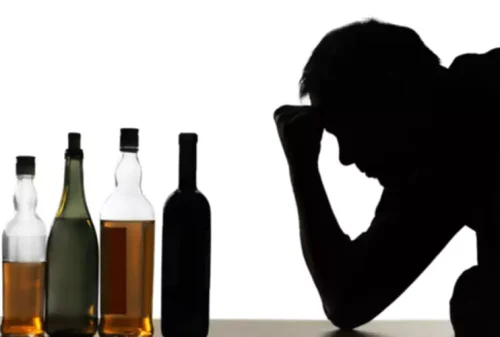
A spiritual malady, then, reduces to a sense of otherness felt by many alcoholics that prevents them from feeling at peace with themselves and the world around them. According to Alcoholics Anonymous, informally known as The Big Book, when someone with alcoholism drinks, they have an abnormal reaction likened to an allergic reaction. Once a person with AUD takes an alcoholic drink, the body craves more on a physical level. This is why 12-step organizations believe it is not possible to conquer alcoholism using willpower alone. Is describing, essentially is referring to a stark void in our lives that we constantly attempt to fill with outside things such as drugs, alcohol, sex, shopping, or anything we can think to try to feel better. It is the emptiness we feel on such a deep level that we turn to self-medication in order to alleviate the sadness and despair that go hand in hand with.
- With us it is just like that.” Thankfully, the “spiritual malady” is no longer a “missing piece” of Step One for me.
- Identifying the right support system is crucial for sustainable recovery.
- This isn’t about a legalistic set of religious rules we are required to follow.
- We statistically addressed these limitations to the extent possible by transforming the variables and using non-parametric procedures, and results suggest that even low levels of struggle can have important implications for post-traumatic distress.
Conscious Contact with a Higher Power
But in our quest to fill this void with any and everything we can think of, we completely miss that the only thing that can actually fulfill us a spiritual connectedness to something greater than ourselves. When the Big Book of Alcoholics Anonymous was written and published in 1939, the times and language of those times was incredibly different than modern times. This is one of the reasons that Big Book study groups have become so popular among recovering alcoholics.
Participants and Procedures
Walking meditation, using labyrinths, and mandalas are also effective methods for finding peace and clarity. These practices help us manage stress, overcome mental obsession, and maintain a balanced, spiritually enriched life. Enhancing spiritual life on a daily basis encompasses practices like meditation, mindfulness, gratitude, and acts of service.
Finding the Right Support System
Spiritual wellness involves developing a purpose in life and having a clear sense of right and wrong. Connecting to inner and outer worlds and living by one’s values and purpose are also vital. Doing so will give you a better idea of how a spiritual malady affects an alcoholic. If you have anything to share about your experience with complicated grief, please comment below.

Big Book of AA Definition of Alcoholic
If you don’t believe in Jesus, or you’re not sure what you think about Him, that’s okay. No matter where you are in your spiritual journey, you’re welcome here, and you’ll find help and acceptance. https://ecosoberhouse.com/ The great psychiatrist Carl Jung called this a ‘low level thirst for wholeness – for union with God’. In our addictions, we tried to quench our soul-thirst with fleeting pleasures.

For these reasons, we can be confident that the sample did not self-select based on variables related to the study questions. The malevolent worldview and disrupted relationship with God characteristic of spiritual struggle may lead to the perceptions of threat or loss that cause and maintain PTSD symptoms (Ehlers & Clark, 2000). For instance, attributing the event to God’s control may be an effort to reduce distress by compensating for a perceived lack of personal control; however, this attribution will only reduce anxiety if God is benevolent (Kay, Gaucher, Napier, Callan, & Laurin, 2008). In fact, negatively-valenced reappraisals of the traumatic event may fail to reduce the current perceptions of threat by merely redistributing the threat from human forces to spiritual ones. But we saw that it really worked in others, and we had come to believe in the hopelessness and futility of life as we had been living it.
- Spiritual discontent has been related to higher levels of depression, suicidality, and PTSD symptoms in a variety of trauma samples (e.g., Exline, Yali, & Lobel, 1999; Harris et al., 2008).
- There is also an opportunity to take advantage of some of the best recovery centers in the country, which can offer help with the mental obsession and the physical allergy.
- If we are willing to look beyond the skeptics and critics of 12-step recovery and the blueprint for living that it offers, we see that the two interact—that spirituality supports recovery and that 12-step involvement, in turn, supports spirituality.
The spiritual malady and addiction

And unless this malady is recognized, and a course of action (the Twelve Steps) is taken to enable God to remove it, the root of our alcoholic illness can lie dormant and burn us when we least expect it. Because exposure to potentially traumatic events is common (Kessler, Sonnega, Bromet, & Hughes, 1995), the mechanisms through which post-traumatic stress disorder (PTSD) symptoms develop is a critical spiritual malady area of investigation (Ozer, Best, Lipsey, & Weiss, 2003). Among the mechanisms that may predict PTSD symptoms is spiritual struggle, a set of negative religious cognitions related to understanding or responding to stressful events. Although prominent theories emphasize cognitive factors in the development and maintenance of PTSD symptoms, they have not explicitly addressed spiritual struggle.

Tap into your inner source of power and keep moving forward
Writes, “For if an alcoholic failed to perfect and enlarge his spiritual life through work and self-sacrifice for others, he could not survive the certain trials and low spots ahead. If he did not work, he would surely drink again, and if he drank, he would surely die. With us it is just like that.” Thankfully, the “spiritual malady” is no longer a “missing piece” of Step One for me. It is a reality of my powerlessness and unmanageability and enables me to see why I so desperately need to seek a Power Greater than myself.
